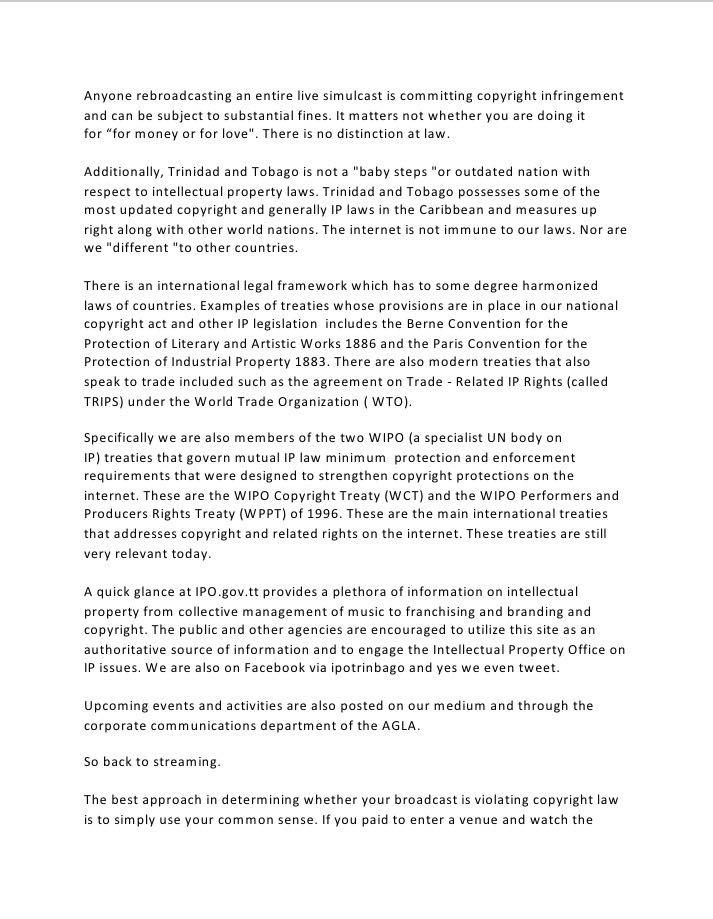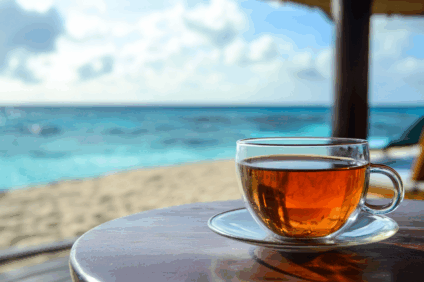Social media platforms like Facebook, Instagram, Twitter and Periscope now give users the options to broadcast ‘live’ to their timeline. While this live streaming option has been praised in providing unique perspectives for current evens and breaking news, the ability to ‘go live’ has provided more opportunities for infringement of copyright laws and the showcasing of illegal content.
Because the technology is available to almost everyone does not mean that persons can willy-nilly use their smart devices to broadcast anything that they want.
The Copyright Act Chap. 82:80 gives legal protection to a variety of ‘works’ including books, computer programs, speeches, dramatic works, stage productions, musical works, audio-visual works, architecture, drawings, painting, sculptures, photographs and illustrations. There are certain types of works however that do not fall neatly into any of these categories.
Live events
Generally the organizers of an event would take measures to restrict access to the venue in which the event occurs. Media companies are awarded licences to cover such events, whether that coverage be live or delayed. Patrons to such events are sold tickets, which are subject to terms and conditions. The ticket forms the basis of a contract between the organizer and the patron. A patron who therefore uses his device to film or broadcast the event to a non-patron would almost certainly be in breach of that contract, and thus the organizer would be entitled to take legal action against such a person. Examples of restricted venues in which a ticket is used to gain access to a live event may include a sporting event, an all-inclusive fete or a circus.
Streaming from an authorized licencee
The Act also affords protection to authorized broadcasters of live events against any rebroadcast or communication to the public of its broadcast. Therefore, someone who streams the live broadcast of any event from a television station is guilty of an offence under the Act.
This situation arose when someone live streamed a pay-per-view broadcast of the 2017 Machel Monday convert via the Facebook Live platform. While the person who streamed the event was applauded by many on social media who viewed the event via this service, the The Trinidad and Tobago Intellectual Property Office subsequently issued a news release on the issue to highlight the illegality of this practice:



On the road
If a venue is not restricted (such as the Grand Stand of the Queen’s Park Savannah for the Parade of the Bands, or the Queen’s Park Oval for the CPL 20/20 cricket tournaments), persons may use the live streaming technology. Carnival masqueraders may therefore ‘go live’ once they are in any public place to display their revelry. Of course, persons should be bear in mind that there may be limits on what can be broadcast, such as content that violates the current law as it relates to obscenity and public order.




